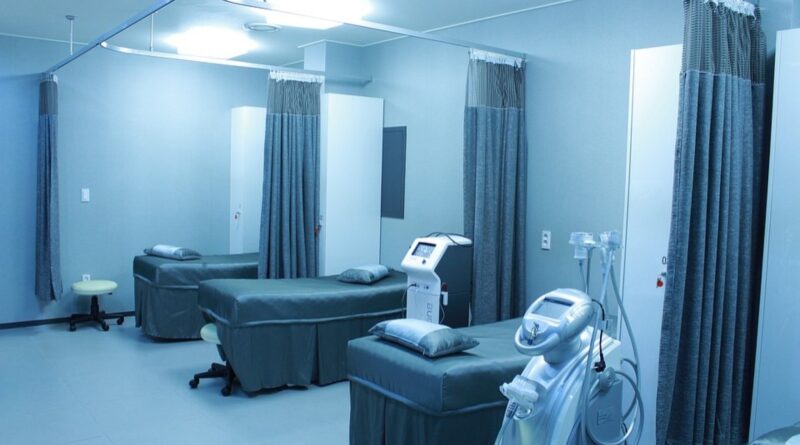South Africa: National Health Insurance Bill Has Noble Aims but Leaves Too Much Uncertain
South Africa’s National Health Insurance (NHI) bill has passed the first hurdle towards becoming law, getting the country closer to its vision of achieving universal access to healthcare.
Section 27 of the country’s constitution states that everyone has the right to access to healthcare. The NHI bill, which has been passed by the national assembly, is the manifestation of this provision.
Universal access to healthcare and the NHI are related. But they are not the same thing.
Universal access to healthcare is an ideal which supposes that everyone should have the same access to healthcare. The NHI bill is a tool to achieve universal health coverage. It aims to ensure that all South Africans have access to quality healthcare services. The bill also aims to provide for the establishment of a fund which will be used to pay for almost all medical treatments from accredited providers.
But this bill has been contentious from inception. There have been multiple court challenges, with more to come, and numerous different voices have been raised against it.
The aim of the NHI is a good and noble one. But the bill is bad law because it fails to provide reasonable certainty. Several court rulings have flagged this. The bill will have massive consequences, so it should be rejected and not enacted in its current form.
The vision
South Africa has a two-tier healthcare system. Those who have the financial resources, or medical insurance, use private healthcare practitioners and facilities. Those who do not have these resources use public practitioners and the facilities provided and paid for by the state.
The current healthcare system has not sufficiently catered for good quality healthcare for all. This system has precluded the poor or those without medical aid from using a large number of health professionals, services and facilities. The NHI will establish a single pool of healthcare funding for private and public providers. It will pay both these providers on exactly the same basis and expect the same standard of care from them.
For South Africans without medical aid (health insurance) or in lower income groups, the NHI will offer more equitable access to healthcare services. It will allow them to consult private practitioners and to attend private facilities. The NHI also purports to improve the resourcing of public hospitals and healthcare services as the burden of care will be more evenly distributed.
For South Africans who do have medical aid, the NHI may be a shock to the system. Those who are accustomed to private care may have to settle for lower standards while still paying a similar or higher fee. South Africans within a certain income bracket will have to make mandatory monthly payments towards healthcare in addition to carrying a higher tax burden.
Read more: South African taxpayers will bear the brunt of National Health Insurance
Medical aid schemes will not be able to offer any services that are offered by the NHI. Private medical insurance will only be able to provide for “complementary or top-up cover” that doesn’t overlap with services covered by the NHI.
These issues are clear, but the NHI bill contains lots of grey areas.
Grey areas
The rule of law requires that everyone, citizens and corporates and governments, adhere to the law. They can only do so if the law is clear and unambiguous. Laws must provide reasonable certainty.
South African courts have explained it like this:
The law must indicate with reasonable certainty to those who are bound by it what is required of them so that they may regulate their conduct accordingly.
The current version of the bill is uncertain in the following key areas:
- the migration of hospitals to semi-autonomous entities
- the structure of the contracting unit for primary healthcare needs
- establishment of the fund
- the Health Patient Registration System
- accreditation issues
- purchasing of services
- the amendment of other pieces of legislation to make room for the NHI and payment concerns.
A significant concern relates to the uncertainty regarding what will be covered by NHI and what will not. As the bill expressly aims to cover the costs of certain healthcare services, it is reasonable to expect that these services be clearly set out. How can we follow the law when we do not know what it is? Without this certainty, the bill is vague and so it cannot be seen as good law.
The bill is also vague on how the NHI fund will be financed. Recent estimates have put its cost at more than R500 billion a year (about US$27.6 billion). And what will happen to medical aid schemes? Section 33 of the bill, which provides for the role of medical aid schemes, is open to the interpretation that these schemes will disappear.

Sign up for free AllAfrica Newsletters
Get the latest in African news delivered straight to your inbox
Real doubt exists as to whether an NHI system will ever be workable in South Africa. The bill has been described as an empty promise. Again, this is bad.
Ideal and practice
Universal access to healthcare and the ideal of a national system of health insurance are important concepts which relate directly to core human rights, and as such are noble and necessary.
However, it’s often the case that an ideal falls short in practice. The NHI bill is no exception. Many concerns and critiques have been raised against the bill and its implementation. Satisfactory solutions have not yet been offered.
The NHI cannot be avoided. But to benefit all and live up to its potential, it should be fully thought through, planned in detail and not rushed.
Larisse Prinsen, Senior lecturer in law, University of the Free State

